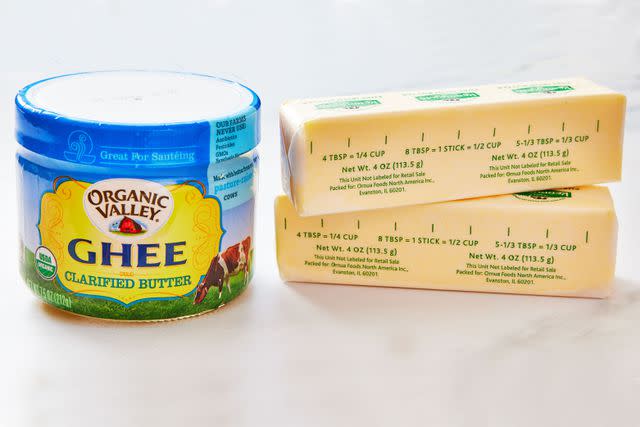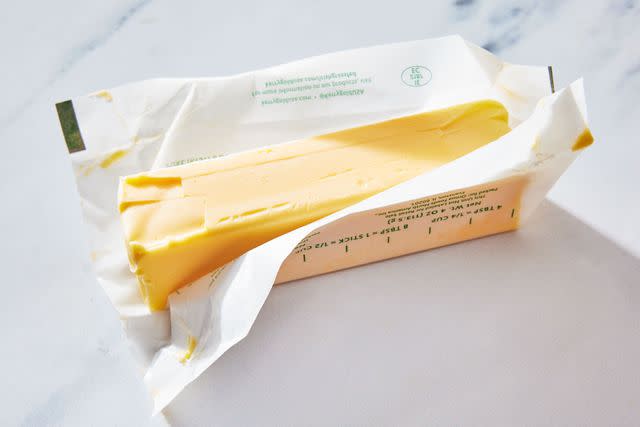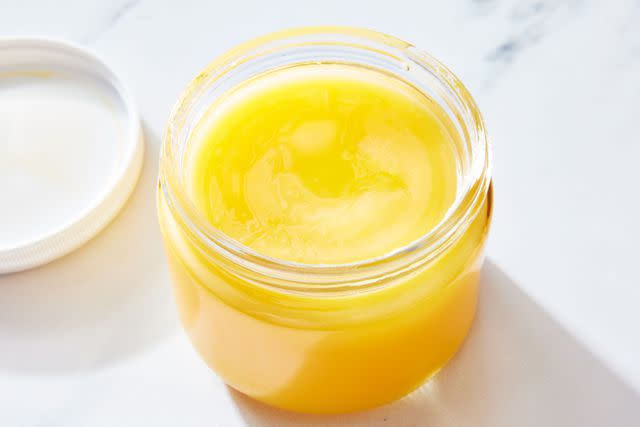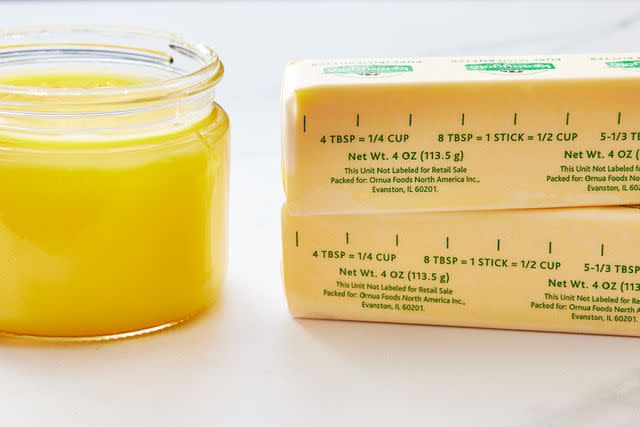Ghee Vs. Butter: What's The Difference?
Everything is better with butter, clarified or not.
The best way to make a recipe even better is to add butter, but does that hold true for ghee, too?
When incorporated into recipes, butter adds flavor, and can also be used when sautéing vegetables as an oil substitute. Of course, warm butter can also be smeared on a hot biscuit.

Caitlin Bensel
Ghee, sometimes touted as a healthier alternative to butter, is clarified butter and can be used in many of the same ways you would use butter or cooking oil.
Though similar, when it comes to ghee and butter, there are several differences including consistency, taste, and how it’s made. To fully understand the similarities and differences between ghee and butter, knowing how each product is made is important.

Caitlin Bensel
What Is Butter?
More than a great way to make a good recipe better, butter is a dairy product made by churning milk, or cream, into a semi-solid fat. Butter is a kitchen staple and comes in multiple forms, including salted, unsalted, whipped, grass-fed, Irish, and more.
Related: 11 Types of Butter—And How To Use Them

Caitlin Bensel
What Is Ghee?
Ghee is clarified butter, which means that all the milk solids and water have been removed to leave just the butterfat. This happens when butter is heated and the liquid and milk separate from the fat. The milk portion solidifies and is skimmed away, and what remains is ghee, or clarified liquid fat. Ghee is cooked slightly longer than clarified butter normally is, resulting in a nuttier taste, similar to browned butter.
Differences Between Ghee And Butter
Even though ghee and butter are similar, they have several important differences:
On expiration: Butter can go bad–and it will, if it is not stored correctly. Because ghee doesn’t contain water, it’s a very shelf-stable product. Making sure your jar of ghee remains water-free (that means steam, too) is key to avoiding bacterial growth.
On cooking: Ghee has a much higher smoke point (more than 480 degrees Fahrenheit) than other cooking oils, including butter. This means that when cooking high heat recipes–think grilled cheese or any kind of fritter–ghee will cook hotter, longer before it starts to degrade.
On consistency: While butter is considered semi-solid, ghee has a smooth and soft consistency.
On taste: When it comes to taste, ghee and butter have similar profiles, though some describe the taste of ghee as a richer version of butter.

Caitlin Bensel
Is Ghee Healthier Than Butter?
While some may argue that ghee is a healthier alternative to butter, the nutritional values of the two are very similar. Both ghee and butter derive almost 100% of the calories from fat, with ghee containing slightly more than butter. There is no scientific evidence to support that one is healthier than the other.
For more Southern Living news, make sure to sign up for our newsletter!
Read the original article on Southern Living.

